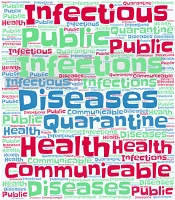Dear editor,
Coronavirus disease 2019 (COVID-19), brought on by Severe Acute Respiratory Syndrome Coronavirus 2 (SARS-CoV-2), has become a world health emergency. As of December 14, 2020, more than 71,503,614 confirmed cases and more than 1,612,833 deaths have been reported worldwide (1). The World Health Organization (WHO) announced the outbreak in China in December 2019, and since then, it has rapidly spread throughout the world (2). The COVID-19 epidemic has proven that health infrastructure in some countries is inadequate.
Higher health literacy levels in a society prevent the outbreak of infectious diseases
In some countries, failure to pay attention to the preventive policies provided by the health system endangers the lives of people. Some countries neglect health care graduates, such as public health experts, resulting in a decrease in the level of health literacy in society. Excessive attention to treatment, particularly threshold treatment, has weakened the health system. In fact, the prevention policy has always preceded the treatment policy. However, there are several questions to answer, including ‘is it possible to control the disease only by providing treatment?’, ‘can treat patients become infected again?’, and ‘does prevention have priority over treatment?’. If so, ‘why people, authorities, and volunteer groups ignore the importance of preventive measures?’; and ‘why nobody knows public health experts, disease specialists, environmental and professional health engineers, and public health service providers?’.
Public health mission
Public health’s longstanding mission is to ‘prevent diseases, prolong life, and encourage health’ through coordinated efforts across societies, associations, and communities (3). The general public health community has tirelessly worked to attain the mission of combating infectious and chronic diseases through research, implementing public health plans, health communication actions, and policy modifications. After the emergence of Middle East Respiratory Syndrome-related Coronavirus (MERS-CoV) in Saudi Arabia in 2012, Covid-19 is the next coronavirus epidemic which has affected the Middle East (4).
The importance of quarantine in epidemics of infectious diseases
Since the beginning of the new century, quarantine has been a part of a public health strategy to deal with emerging and re-emerging infectious diseases. Throughout the 2003 outbreak of SARS, contact tracing, boundary controlling, quarantine, and monitoring were proved to be effective in preventing the infection. For many years, health care centers have been responsible for dealing with epidemics. The measures taken for controlling epidemic diseases have been contentious because they strike the balance between public interest and human rights and raise ethical, political, and socio-economic issues (5). During the recent COVID-19 pandemic, it has become increasingly clear that home quarantine plays a significant role in cutting the virus transmission chain. However, one of the reasons for the rapid spread of the virus was the failure to quarantine. Given its high effectiveness, governments need to pay much more attention to domestic quarantine to prevent the spread of infectious diseases. Until now, COVID-19 has affected 71,503,614 people around the world and is accountable for the death of 1,612,833.
Lessons from COVID-19
- Quarantine is one of the most important strategies to prevent the spread of infectious diseases’ epidemics.
- Adherence to personal hygiene protocols is very important.
- Strengthening public health infrastructures can help control the disease.
- Social distancing can prevent the spread of the disease.
- In viral diseases, in addition to treatment, self-health care should be provided to the general population.
- Updating health guidelines is very important in the face of infectious diseases’ epidemics.
- Governments should pay further attention to the public health field in universities.
Conclusion
Obviously, there is much to learn from the measures taken by public health systems amid this epidemic. Also, the real-time information provided by health systems and the actions taken by governments have eliminated several limitations of medical care systems. Therefore, it is highly recommended to follow the strategies proposed by health care systems during future epidemics. Given the current health crisis around the world, quarantine should come into effect as soon as possible; otherwise, more deaths would be inevitable.
